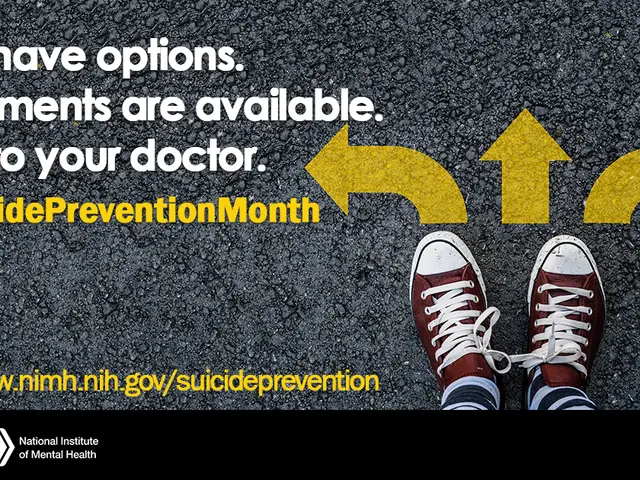Causes of Elevated Cholesterol Levels: Exploring the Factors
In the quest for maintaining optimal cardiovascular health, understanding cholesterol levels and their management is crucial. This article provides a comprehensive guide on how to manage cholesterol levels effectively.
Cholesterol, an essential substance produced by the liver and consumed in food, travels around the body in lipoproteins. There are two main types of lipoproteins: LDL, often referred to as "bad" cholesterol, and HDL, known as "good" cholesterol. The optimal LDL level is about 100 mg/dL, HDL should be at least 40 mg/dL in males and 50 mg/dL in females, and total cholesterol should be around 150 mg/dL.
Various factors can contribute to high cholesterol levels. A sedentary lifestyle, for instance, may lead to higher LDL levels and lower HDL levels, increasing the risk of cardiovascular health conditions. Stress may also indirectly increase cholesterol levels by causing a person to adopt less healthy habits.
High alcohol intake, certain medications, and certain health conditions such as diabetes, high blood pressure, obesity, liver or kidney disease, polycystic ovary syndrome, pregnancy, and other conditions that increase levels of female hormones, underactive thyroid gland, and nephrotic syndrome, can increase the risk of developing high cholesterol.
To reduce or manage cholesterol in the body, several key dietary changes are recommended. These changes focus on increasing intake of fiber and healthy fats while limiting harmful fats and sugars.
Firstly, eating more soluble fiber can help remove cholesterol from the body. Foods rich in soluble fiber include oats, barley, beans, lentils, apples, and pears. Consuming 5 to 10 grams daily of soluble fiber can lower LDL ("bad") cholesterol by 5 to 10%.
Secondly, choosing heart-healthy diets such as the DASH and Mediterranean diets is advisable. These dietary patterns emphasize fruits, vegetables, whole grains, fish, nuts, legumes, and healthy oils like olive oil, while limiting saturated fats, full-fat dairy, fatty meats, sugary beverages, and sweets.
Thirdly, limiting saturated and trans fats is crucial. Reduce intake of saturated fat found in fatty meats and full-fat dairy products, as these raise LDL cholesterol. Avoid trans fats present in processed and fried foods.
Fourthly, increasing intake of healthy fats can help improve cholesterol balance. Use sources of monounsaturated and polyunsaturated fats such as olive oil, avocados, nuts, and seeds.
Lastly, eating plenty of fruits and vegetables provides antioxidants and fiber that aid heart health and cholesterol lowering.
In addition to dietary modifications, regular exercise, quitting smoking, and maintaining a healthy weight are beneficial lifestyle changes. These steps help raise HDL ("good") cholesterol and help remove LDL cholesterol.
Individuals with high cholesterol levels may also require medications such as statins, bile acid sequestrants, niacin, fibrates, and injectable PCSK9 inhibitors. It is essential to consult healthcare professionals for personalized advice.
In conclusion, emphasizing soluble fiber, whole grains, fruits, vegetables, lean proteins, and healthy fats while limiting saturated fat, added sugars, and processed foods can effectively help reduce high cholesterol levels naturally. However, some individuals may also require medications, and it is crucial to consult healthcare professionals for personalized advice.
- Cholesterol, produced by the liver and found in food, travels in two main forms: LDL, or "bad" cholesterol, and HDL, or "good" cholesterol.
- Factors like a sedentary lifestyle, stress, or certain medical conditions such as diabetes, obesity, and hypertension can contribute to high cholesterol levels.
- Eating more soluble fiber from foods like oats, apples, and pears, or adopting diets like DASH or Mediterranean, can help lower LDL ("bad") cholesterol by up to 10%.
- Limiting saturated fat from red meat and full-fat dairy and avoiding trans fats in processed foods is essential for managing cholesterol levels.
- Increasing healthy fats from sources like olive oil, avocados, nuts, and seeds can also improve cholesterol balance in the body.
- Regular exercise, quitting smoking, maintaining a healthy weight, and taking prescribed medications are additional steps to help manage cholesterol levels, and it's vital to consult healthcare professionals for personalized advice.
- Achieving optimal cardiovascular health requires understanding and properly managing cholesterol levels, as well as addressing other chronic diseases like diabetes, obesity, depression, COPD, and maintaining overall health and wellness through fitness, exercise, and nutrition.





